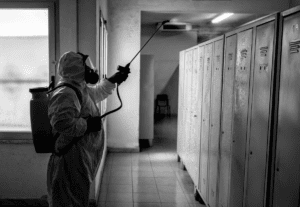As the world becomes more conscious of the impact of carbon emissions on the environment, businesses have a significant role to play in reducing their carbon footprint. Reducing your carbon footprint not only helps the environment but also helps your business save money and attract eco-conscious customers. Here are some practical tips for businesses to reduce their carbon footprint:
Telecommuting

Allowing your employees to work remotely can significantly reduce your carbon footprint. It eliminates the need for employees to commute to and from work, which reduces the amount of carbon emissions from transportation. Consider offering flexible work hours or remote work options to your employees.
Reduce Paper Usage
Reducing paper usage in the workplace not only saves trees but also reduces the amount of energy and resources used to produce paper products. Encourage employees to use digital documents and communicate via email or other online platforms. Use double-sided printing to reduce paper usage and recycle paper whenever possible.

Use Energy-Efficient Equipment

Switch to energy-efficient office equipment, such as computers, printers, and lighting systems. Energy-efficient equipment not only reduces your carbon footprint but also saves money on energy bills. Consider using natural lighting instead of artificial lighting, and turn off electronic devices when not in use.
Encourage Sustainable Commuting
Encourage your employees to use sustainable transportation options, such as biking, walking, or using public transportation. Offer incentives for employees who use these sustainable transportation options, such as free parking or bike storage.

Implement Green Procurement Practices

Implement green procurement practices by purchasing eco-friendly products and services. This includes using sustainable building materials, energy-efficient appliances, and green cleaning supplies. Look for products and services with eco-friendly certifications, such as Energy Star and LEED.
Conduct An Energy Audit
Conduct an energy audit to identify areas where your business can reduce energy consumption. An energy audit can help you identify areas of inefficiency, such as lighting, heating, ventilation, and air conditioning (HVAC) systems. You can also identify opportunities for renewable energy, such as solar panels or wind turbines.

Reducing your carbon footprint is not only good for the environment but also good for business. By implementing these practical tips, businesses can save money, attract eco-conscious customers, and reduce their impact on the environment. Start small, and gradually incorporate sustainable practices into your business operations. Every small step counts towards a greener future!






